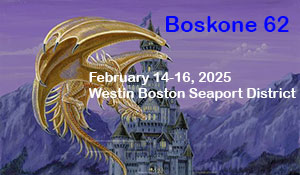
Space
by Stephen Baxter
HarperCollins, 2000, 455 pp, £16.99
This is a weird one! It's strange both as a book and in its relation to Baxter's other recent book, Manifold:Time. (Space was titled Manifold:Space in its US edition.)
It's unclear to me just what Baxter is trying to do here, but Time and Space both take our own near future as their starting point and have many characters in common. Reid Malenfant, the main character in Space, is also one of the main characters in Time, as are others. However, the stories are completely unrelated in entirely inconsistent except that they derive a lot of the plot from eschatology.
In Space, the issue is the good old Fermi Paradox: Everything we know says that intelligence should not be limited to earth. But if so, where are the aliens? We see no reason why intelligence shouldn't arise fairly often and why it shouldn't spread, ultimately, to other stars. If so, then the whole galaxy should be colonized by now. So where are they?
A discovery is made of what appear to be newly-arrived alien ships mining in the asteroids. Reid Malenfant sets out to learn about them and, once he has learned how they got here, he sets out to backtrack to their homeworld.
The book becomes a series of jumps into the future as Malenfant and other travelers who followed him come back to the Solar System from time to time. Each time, things have gone a bit further down hill. Earth is ruined by ecological catastrophe. The Moon has been colonized, but is resource-poor. Man didn't get to the asteroids in time to lay claim to their riches. Mars is a dead end. Etc.
In parallel, Reid Malenfant has learned why the aliens are all turning up at about the same time: Every hundred million years or so there's a gamma ray burster (GRB) somewhere in the galaxy which sterilizes it of both higher life and machines. All alien civilizations and their machine servants are destroyed and a new crop of intelligences have to evolve and spread again.
There's an appropriately climactic ending to Space and the promise of an end to this cycle of destruction. The book is interesting and full of good ideas and the sensawonder is present in quantity. I enjoyed reading it.
But, my God, the plot is full of gaping holes!
Space is a good story which was fun to read, but it's so full of holes it's a bit embarrassing.







 Donate to NESFA
Donate to NESFA